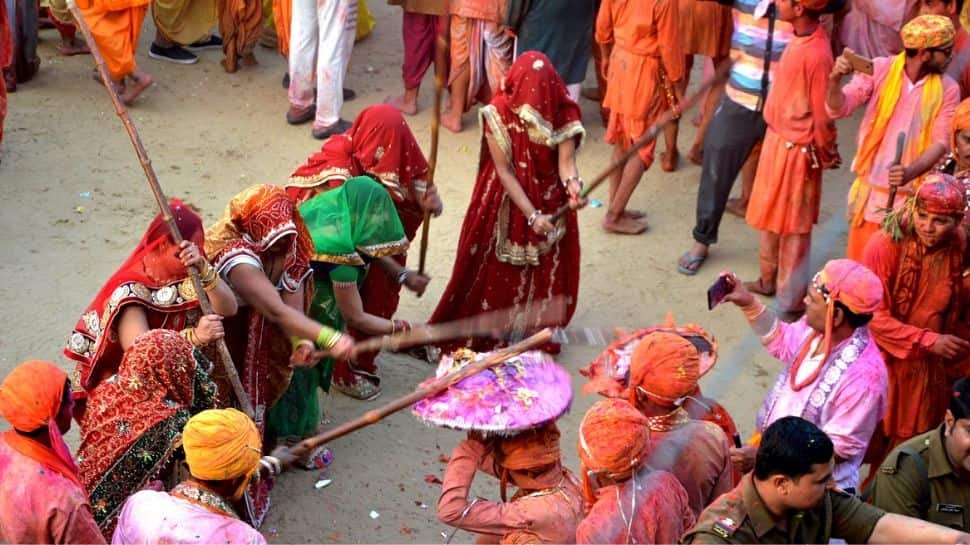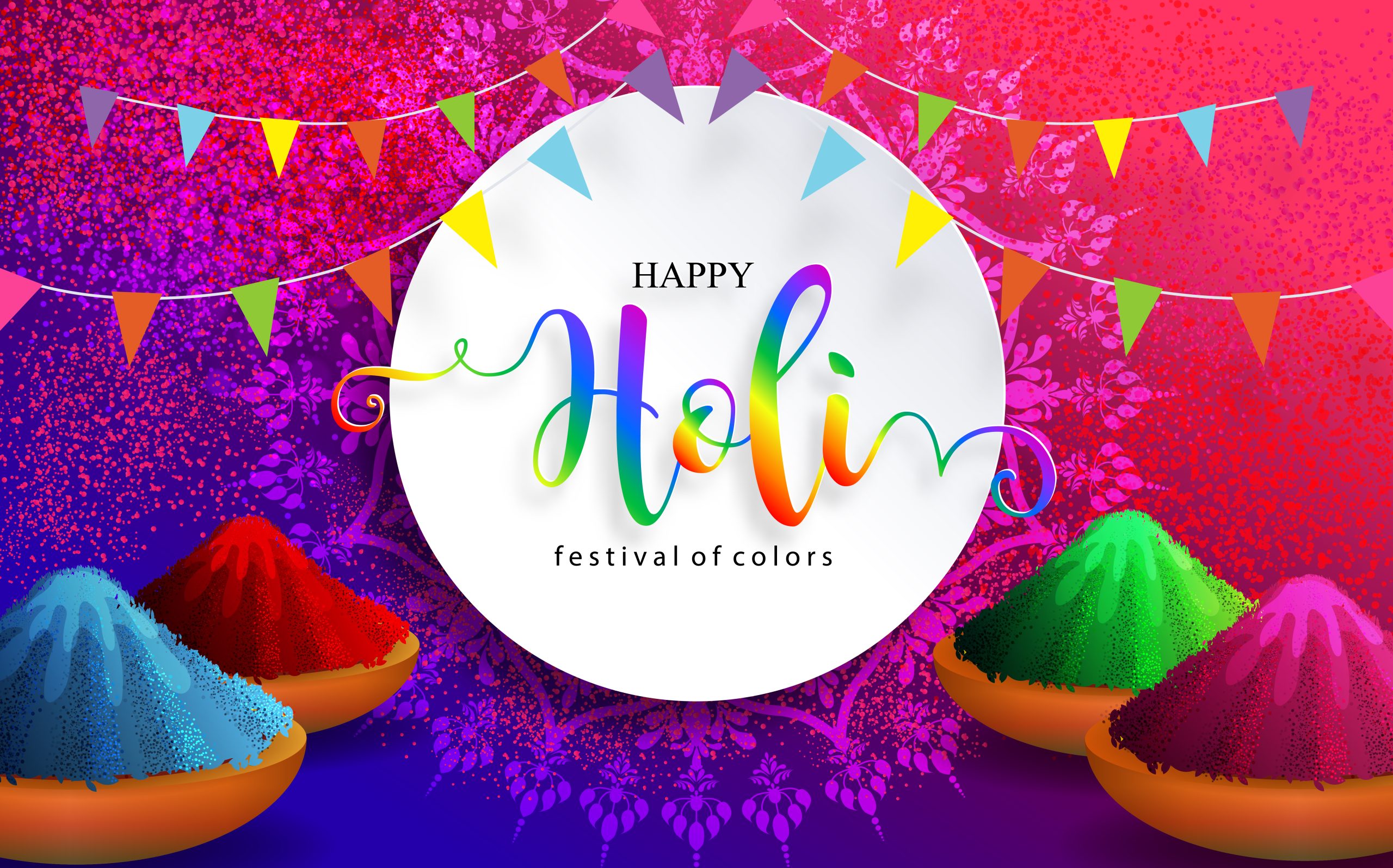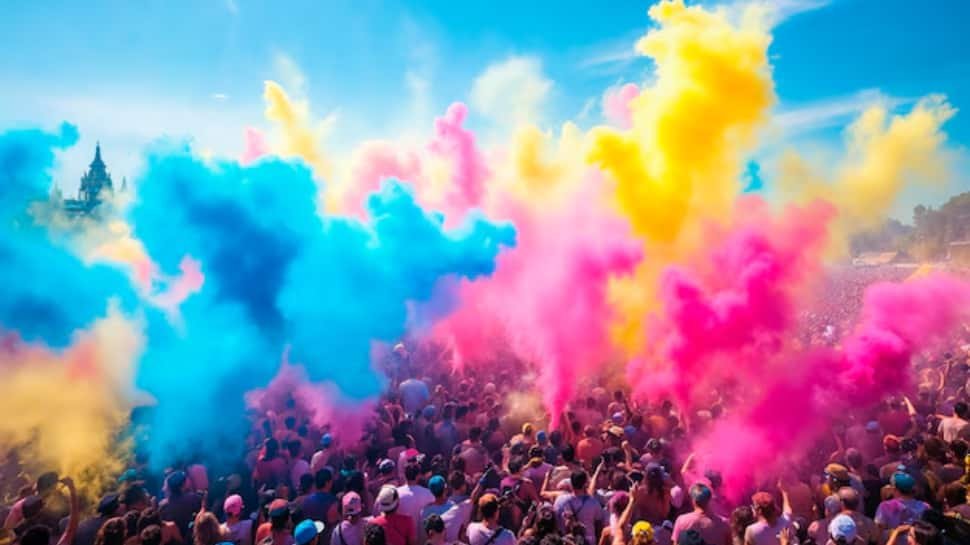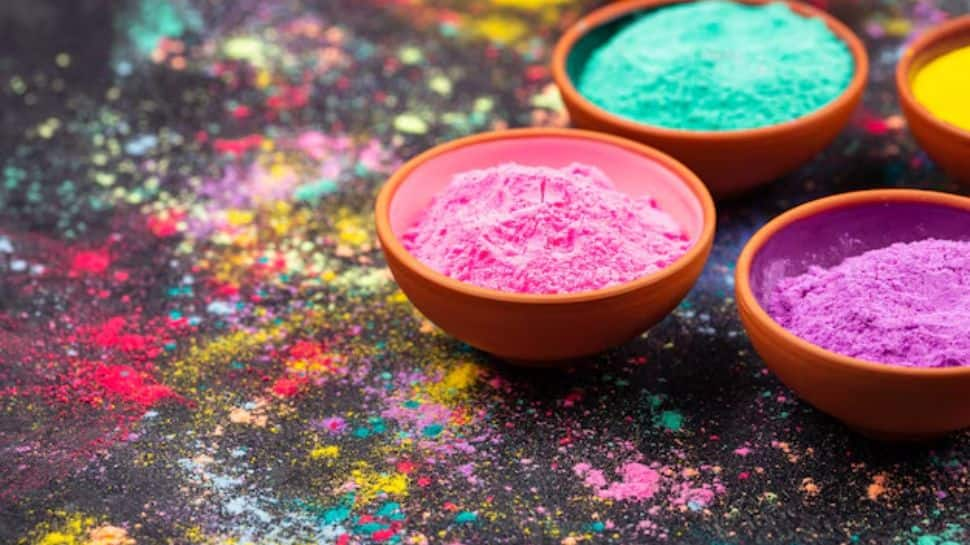Gallery
Photos from events, contest for the best costume, videos from master classes.
 |  |
 |  |
 |  |
 |  |
 |  |
 |  |
The Holi festival has a cultural significance among various Hindu traditions of the Indian subcontinent. It is the festive day to end and rid oneself of past errors, to end conflicts by meeting others, a day to forget and forgive. People pay or forgive debts, as well as deal anew with those in their lives. The festival involves playing with colors, burning a thatched hut at dusk, and dancing the thabal chongba (“moonlight dance”), the region’s traditional folk dance. In Maharashtra, Holi is celebrated by some communities over two days, much like in North India, and the day before Holi is Holika Dahan, when bonfires are lit. Holi, the festival of colours, will take place on March 14, this one of India’s most vibrant and joyous celebrations, marking the arrival of spring, renewal, and the triumph of good over evil. The festival of colours, Holi, is the most vibrant of all Hindu festivals. It marks the end of winter in India and welcomes the spring season. On this festive day, people play with colours, meet and greet one another and create new beginnings. But do you know the real reason why Holi is celebrated? Also known as the festival of colors, Holi (pronounced Ho-lee) is a Hindu religious holiday that celebrates the victory of good over evil and is one of the most well-known festivals in India. The festival celebrates the feelings of love and pure joy with a chaotic countrywide colored powder fight. Holi 2025 falls on March 14th. The main Holi is a Hindu festival that celebrates spring, love, and new life. Some families hold religious ceremonies, but for many Holi is more a time for fun. It's a colourful festival, with dancing Holi is one of the most famous festival is about to come. It is a traditional Hindu spring festival held in India. It is mainly held on the full moon day in March and celebrates the arrival of spring. Holi, often called the "festival of colors," is a vibrant and joyful Hindu celebration that marks spring’s arrival, the triumph of good over evil, and the legendary love between Radha and Krishna. Holi is an ancient Hindu festival that originated in India and Nepal and is now celebrated in many places around the world. The date changes each year depending on the full moon, but it is held some time between the end of February and the middle of March, and lasts a night and a day. Holi Across India 1. Mathura and Vrindavan. Holi in Mathura and Vrindavan, the land of Krishna, is legendary. The celebrations begin weeks in advance with unique traditions such as Phoolon Ki Holi (playing Holi with flowers) at the Banke Bihari temple and Widow’s Holi, where widows break social taboos and participate in the festival. 2. INDIA - Holi festival 909557 worksheets by MSGVDA .INDIA School subject: English as a Second Language (ESL) (1061958) Main content: Festivals (2012124 In 2026, Holi will be celebrated on Wednesday, March 4, 2026. Holi Celebrations Across India. Holi is known by various names across India, including Dol Purnima, Phagwah, Rangwali Holi, Dhulandi, Shigmo, and more. While the core traditions remain the same, each region adds its unique touch to the celebrations. Holika Dahan Rituals (Puja Vidhi) Holi is an ancient Hindu festival that originated in India and Nepal and is now celebrated in many places around the world. Holi marks the beginning of spring. The date changes each year, depending on the full moon, but it is held sometime between the end of February and the middle of March and lasts a night and a day. The Holi festival is an ancient Hindu festival with its own cultural rituals which emerged before the Gupta period. [7] The festival of colours finds mentioned in numerous scriptures, such as in works like Jaimini's Purva Mimamsa Sutras and Kathaka-Grhya-Sutras with even more detailed descriptions in ancient texts like the Narada Purana and Bhavishya Purana. Every spring, people across India and around the world celebrate the Hindu festival Holi, throwing colored water and powders on one another in joyous celebration. On this one day—the full-moon day of the Hindu month of Phalguna—societal rankings such as caste, gender, age, and status are eschewed in the spirit of making merry together, and Worshipers at Barsana Temple in Barsana, Uttar Pradesh, India during the Holi festival Photo by Sandipan Majumdar (Kolkata, India), March, 2011. Tourists join in the festivities in Kuala Lumpur Experiencing Holi with A Hospitality Club and Rajasthan Tours India. For those planning to experience Holi in India, A Hospitality Club and Rajasthan Tours India offer excellent packages that allow you to immerse yourself in the authentic celebration of the Holi festival of colors. 10 lines on Holi Essay in English. Holi is a festival celebrated enthusiastically in India. The Holi festival is celebrated every year in February or March. Holi is a festival of colour and happiness. Festival Holi is mostly celebrated by Hindu people all over the world, but now it’s people of all religions celebrating it. As Holi approaches, Indian traders are experiencing a surge in sales, with business expected to exceed Rs 60,000 crore, driven by high demand for traditional and festive goods. Holi is a major Hindu festival celebrated as the Festival of Colours, Love, and Spring. It celebrates the eternal and divine love of the deities Radha and Krishna. Additionally, the day signifies the triumph of good over evil, as it commemorates the victory of Vishnu as Narasimha over Hiranyakashipu.
Articles and news, personal stories, interviews with experts.
Photos from events, contest for the best costume, videos from master classes.
 |  |
 |  |
 |  |
 |  |
 |  |
 |  |